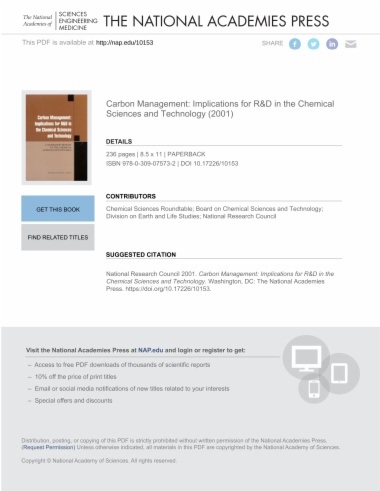

Considerable international concerns exist about global climate change and its relationship to the growing use of fossil fuels. Carbon dioxide is released by chemical reactions that are employed to extract energy from fuels, and any regulatory policy limiting the amount of CO2 that could be released from sequestered sources or from energy-generating reactions will require substantial involvement of the chemical sciences and technology R&D community.
Much of the public debate has been focused on the question of whether global climate change is occurring and, if so, whether it is anthropogenic, but these questions were outside the scope of the workshop, which instead focused on the question of how to respond to a possible national policy of carbon management. Previous discussion of the latter topic has focused on technological, economic, and ecological aspects and on earth science challenges, but the fundamental science has received little attention. This workshop was designed to gather information that could inform the Chemical Sciences Roundtable in its discussions of possible roles that the chemical sciences community might play in identifying and addressing underlying chemical questions.